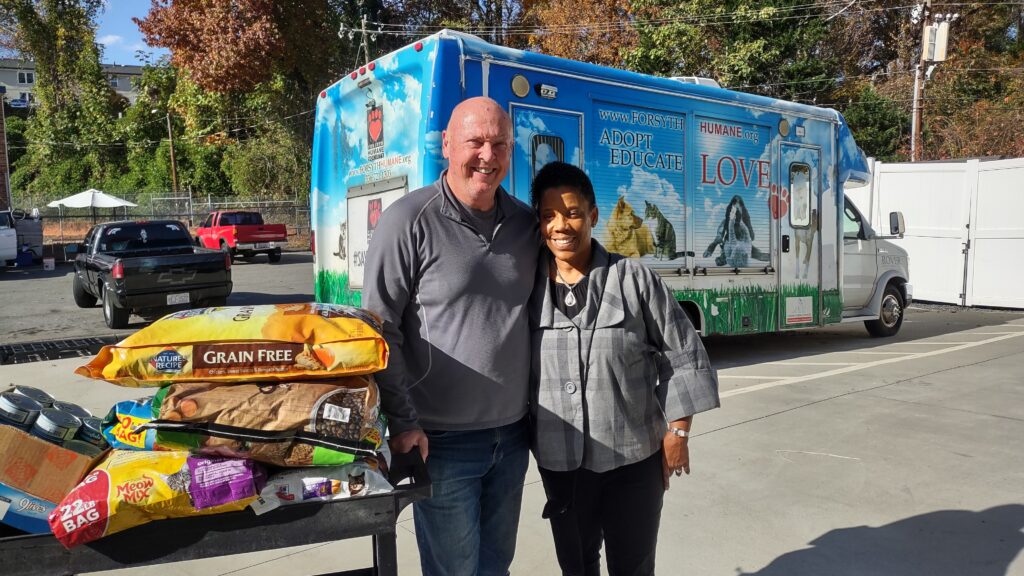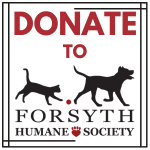Community cats. You have likely seen them lingering around apartment complexes, mechanical shops, parking lots, gathered around dumpsters and the like. These Felis Catus are the same species as domestic cats but they live outside and are unowned. They have ended up in this situation due to pet abandonment and the failure of the community to spay/neuter their animals, allowing them to breed uncontrolled. Most community cats are not suited to live indoors with people and they don’t need to. They can live happy, full, healthy lives in outdoor colonies and we can help!
Marla Torrence is a volunteer/colony caretaker with Forgotten Felines of Forsyth County and board member with Furever Friends where she assists community members with dog/cat food and referrals for veterinary care. Marla has her daily rounds to ten (10) different spots around East Winston and Walkertown where she leaves food for community cat colonies. She is one of our partners who is diligently taking care of animals and people in our community. Marla drops by and gets food from our Pet Food Pantry to help care for these animals and the impact has been profound.

Marla knows these colonies and has helped humanely trap the cats, have them spayed or neutered and vaccinated against rabies and then returned to their communities to live out their lives. This Trap, Neuter, Release (TNR) method helps stabilize the population, improve the lives of cats, and reduces the risk of disease. Community feral cats are easily identified by having a tipped left ear. Cats who have had the top quarter inch of the left ear surgically removed have been spayed or neutered and are a part of a colony with a caretaker.
Some might ask what benefits community and feral cats may offer and there are several, including decreasing isolation and offering a sense of purpose to people who care for them, helping control the rodent population and stabilizing the cat population – it may not seem like a lot but it’s a grand example of the symbiotic relationship that can be formed between animals and people. It’s a practice of wellness in companionship that we talk so often about.
One more thing to note, here at Forsyth Humane Society we often have cats that come in who just aren’t interested in living inside so we built a program called Mighty Mousers that support these working cats and find the right outdoor home for them. Read about our Mighty Mouser program and cats like Whiskertons who was not thriving inside but is indeed thriving as an outdoor shop cat these days!
More information about Forgotten Felines of Forsyth County
Written by Kristen Williams

